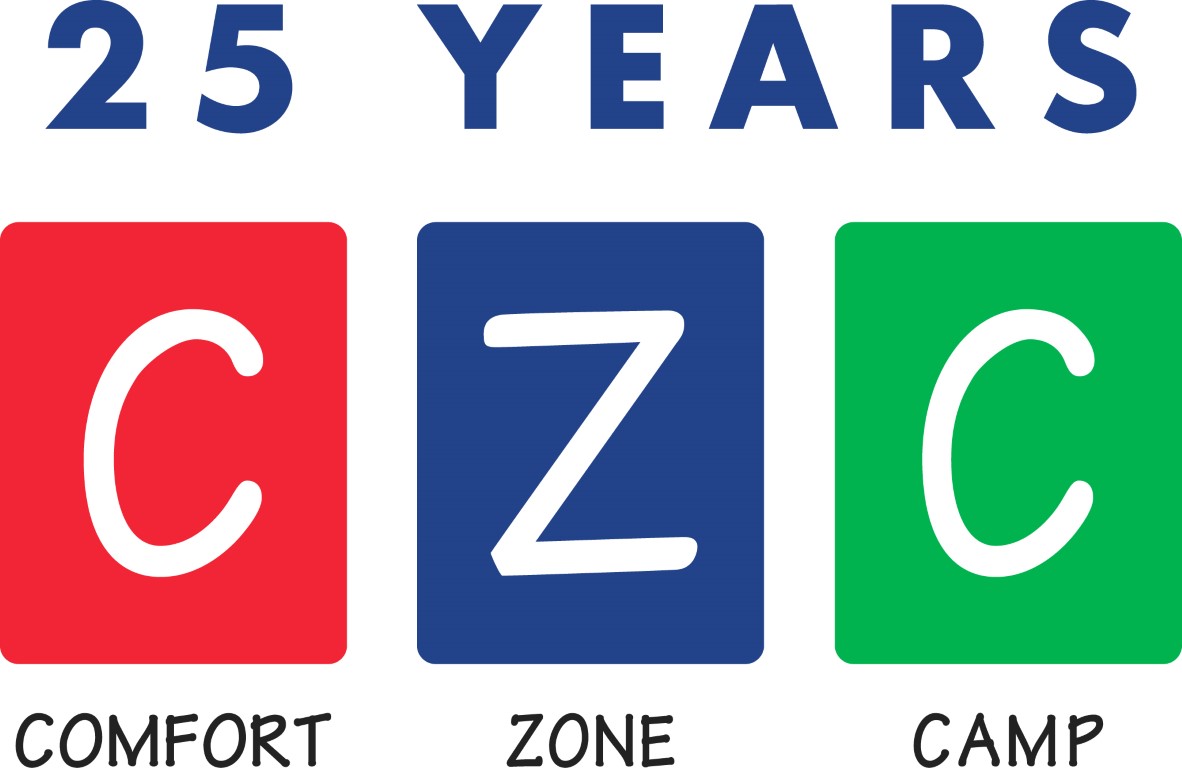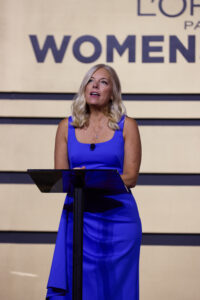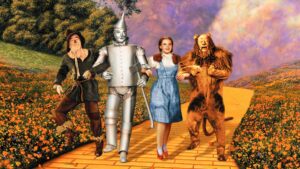Beyond Father’s Day: When Love and Loss Becomes a Lifetime Legacy

Joseph Russo had a gift for making everyone feel like family. His warmth radiated through every interaction, whether he was sharing a laugh or lending a helping hand. He possessed that rare ability to tease in a way that made you feel special rather than stung – a testament to the genuine love that powered his humor. When friends or family needed support, my dad was already at their door, expecting nothing in return. That was who he was to the world. But to me, he was everything: father, best friend, and the reflection I still see in the mirror nineteen years after his death.
Being an older father came with challenges. I struggled with others mistaking him for my grandfather, though I imagine those moments weighed even heavier on his heart. Looking back, I realize he worked to pack every minute of our eleven years together with meaning. Whether it was attending every game with my mom as my personal coach and fan club, teaching me to dribble without looking, perfecting my softball swing, or showing his support for women’s sports, he believed his daughter could achieve anything.
In quiet moments, he showed me that strength included vulnerability, letting tears flow freely and never hesitating to express his pride or love.
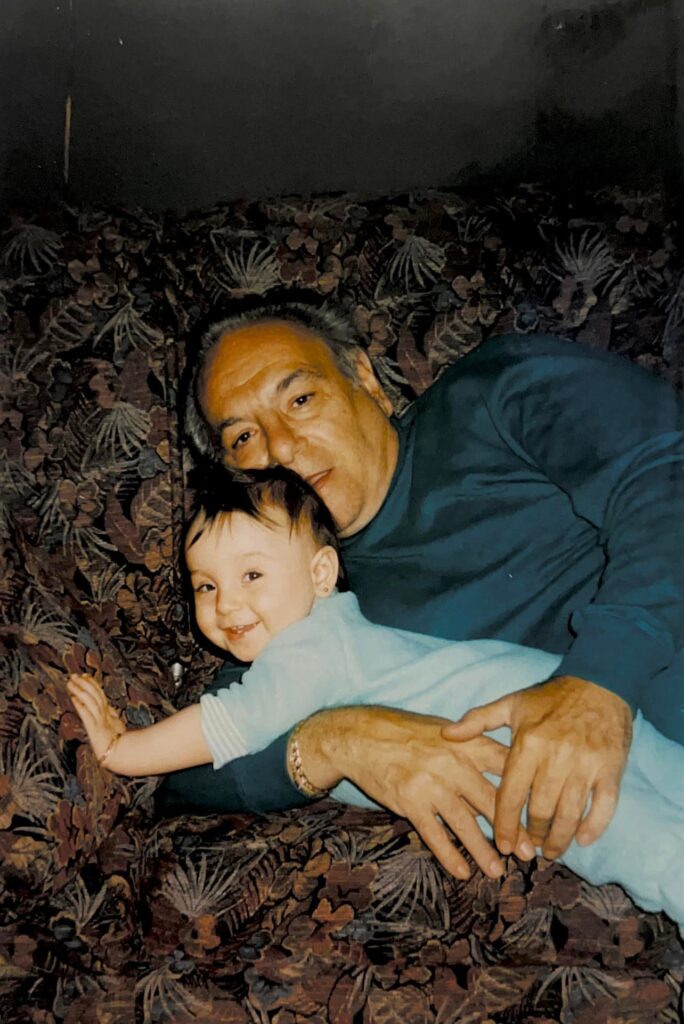
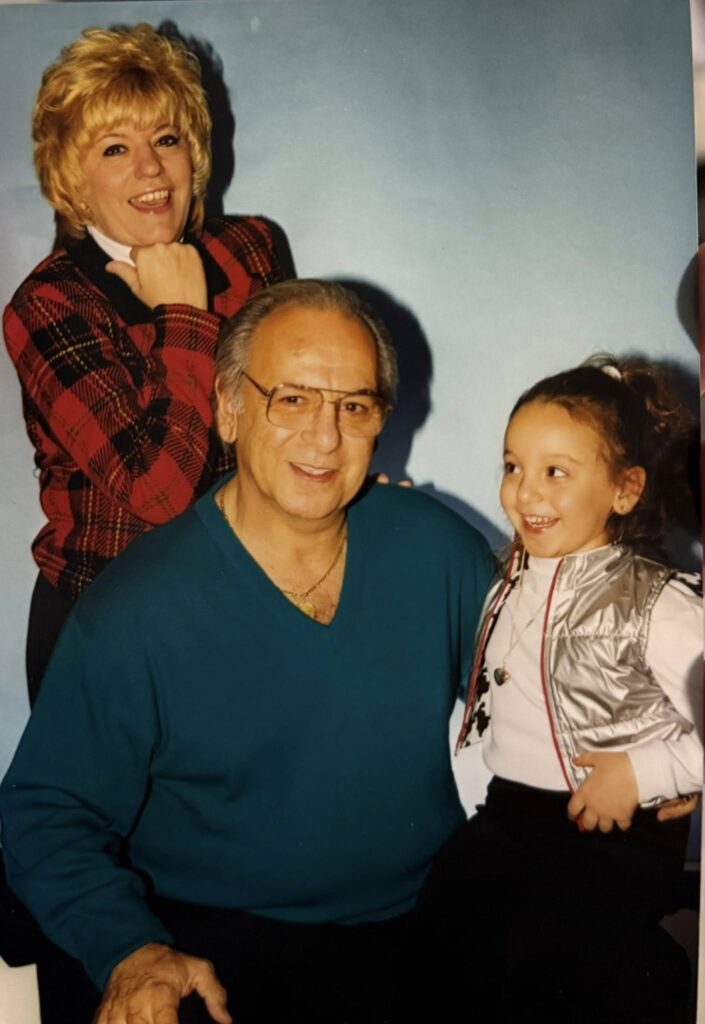
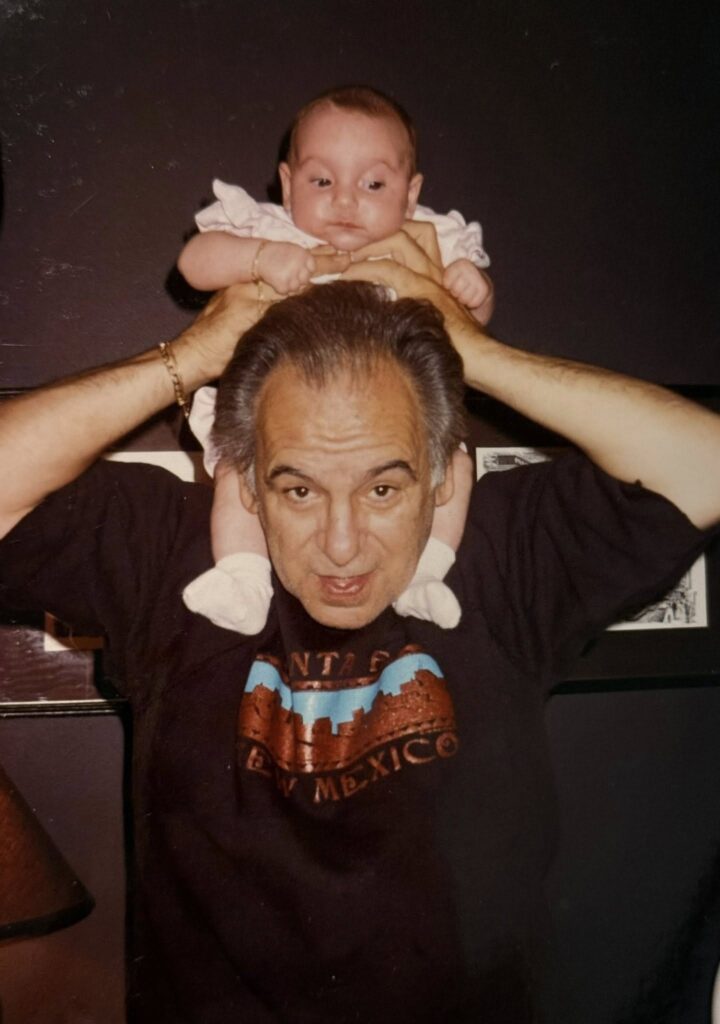
His dedication manifested in countless ways. Beyond attending every game my mom, he was my personal coach and fan club all in one – teaching me to dribble without looking, perfecting my baseball swing, and sharing his encyclopedic knowledge of college basketball. There was a major generational gap, but it didn’t stop him from believing his daughter could achieve anything. Showing his support for women’s sports, specifically the WNBA is something that I look back on and think fondly of. In quiet moments, he showed me that strength included vulnerability, letting tears flow freely and never hesitating to express his pride or love. He also showed me what it looks like to love someone. The thought of his and my mother’s laughter from the living room while I fell asleep at night remains one of my most cherished memories, a sound I so deeply wish I could hear again.
There was something to be said about a man, often exhausted and unwell, who found endless energy for his daughter. The depth of love he poured into our brief time together explains why my grief remains infinite. Through actions rather than words, he taught me the meaning of unconditional love. It was simply his nature – the only way he knew how to care for those dearest to him, especially my mother and me.
They say cats have nine lives, and that’s how I explain my father’s story. It began in my fourth grade year with what everyone thought was a simple cold. My mom initially brushed it off as typical “man flu” dramatics, but as days passed, it became clear something was seriously wrong. That “cold” turned out to be congestive heart failure – the first of many health battles my father would face. Over the next two years, the hospital became our second home. Each new challenge seemed more daunting than the last: a defibrillator implant, an aneurysm, kidney failure leading to dialysis.
Yet after each setback, my father would emerge stronger, more resilient, somehow managing to become an even better version of himself.
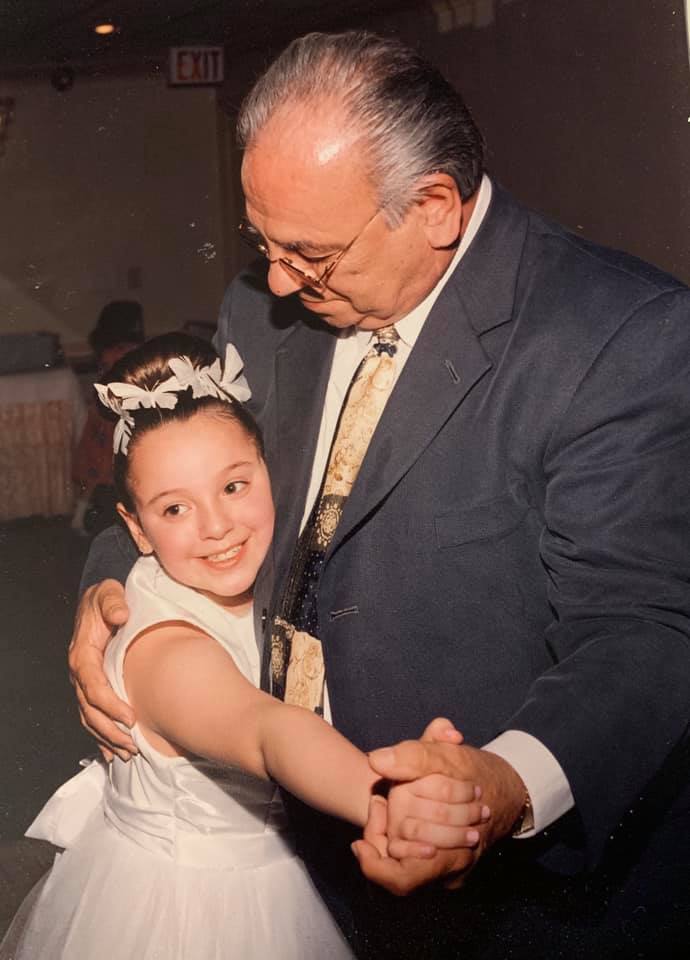

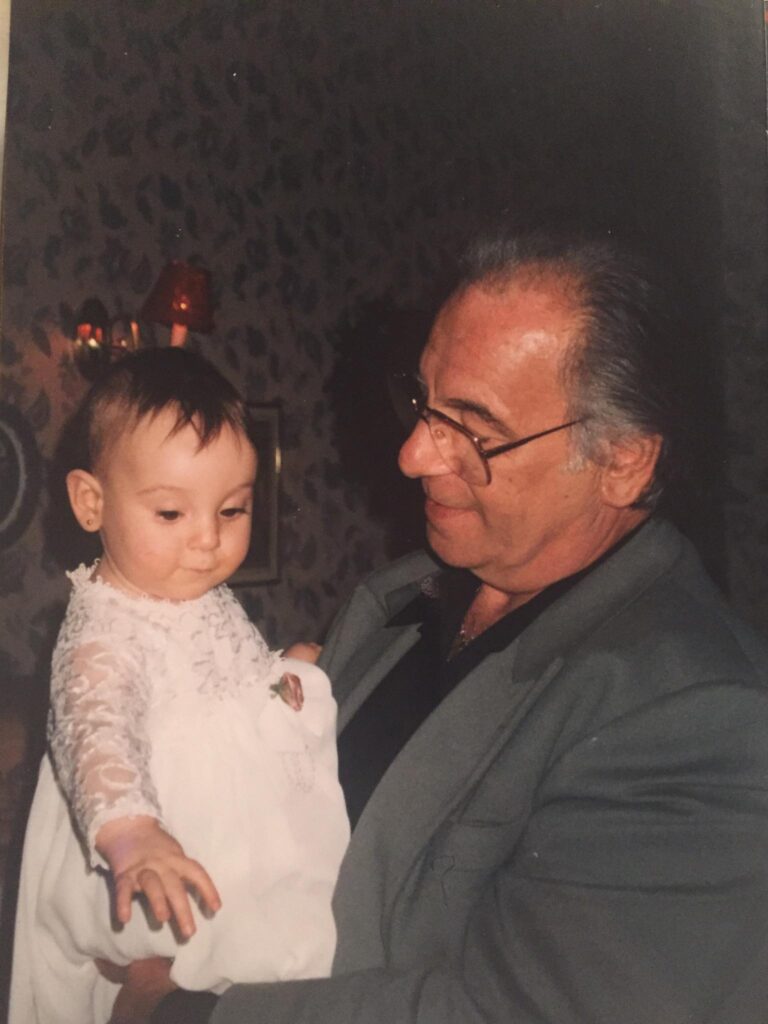
But like just cats, even my father’s remarkable resilience had its limits. Chronic leg pain from poor circulation had long troubled him, so he opted for surgery to find relief. The procedure itself was successful, though it ran longer than expected, leaving him more disoriented than usual. While I was accustomed to visiting him after surgeries, both he and my mom agreed this time was different – it wasn’t how they wanted me to see him.
On November 12th, the hospital called my mom about his dangerously low blood pressure, urging her to come immediately. When she arrived, he looked at her and said something chilling: “I am going to die today.” My mom did what she always did – reassured him, dispelled the darkness. Hours passed, his blood pressure normalized, and it seemed like just another false alarm in our familiar dance with danger.
After spending the entire day by his side, my mom needed coffee. He insisted she go, content watching sports on TV. She went downstairs, waiting for her cousin to arrive. In that brief moment of respite, the intercom echoed: “Code Blue MSICU.” Somehow, she knew. Minutes after she’d left his room, a massive heart attack took him from us.
People often ask if I regret not seeing him in those final days. I don’t. Instead, I’m grateful. My last memory of my father is pure joy – his excitement about feeling better, his laughter, his warm hug before I left for school.
There’s a blessing in not witnessing the dimming of someone who always lit up every room he entered.
I feel the same way about my mom’s experience. While she saw him through his struggles, he waited until she stepped away before taking his final breath. Science might say we can’t choose when death comes, but in my heart, I believe he told his body, “Hold on just a little longer. I need more time with my girl before I go.”
When someone tells you that after losing a loved one, the world keeps spinning, that everyone returns to their lives while you’re left alone with your grief – believe them. They’re telling you a painful truth.
Growing up, our world was perfectly contained: my dad, my mom, and me against everything else. In our story, we were the main characters, with others playing their supporting roles. Love seemed to overflow around us, with people always showing up to celebrations, filling our lives with joy.
Then my dad died, and it was as if everyone vanished with him. People kept their distance, as though our grief was contagious. Life continued, yes, but there was this unspoken expectation that my mom and I should just adapt, figure it out, move forward. Our family had always been uncomfortable with emotions, treating grief like milk with an expiration date stamped on the carton.
But how do you simply move on when half of your genetic blueprint has vanished?
When your mother has lost her husband, her great love, her partner for all the days that should have stretched ahead of them? People understand missing those who are still alive, yet somehow death is supposed to make us stop missing them, stop loving them – or at least hide those feelings away, only to be examined in private moments when no one’s watching.
School was no different. People expected me to contain my pain, to make it smaller, more manageable for them. I couldn’t. Even when I tried my hardest my grief refused to be silenced. Then came an unexpected turning point. One day after basketball practice, I saw my mom had come inside instead of waiting in the car. She was talking with my coach Courtney and her father Gerry, and there it was: a genuine smile.
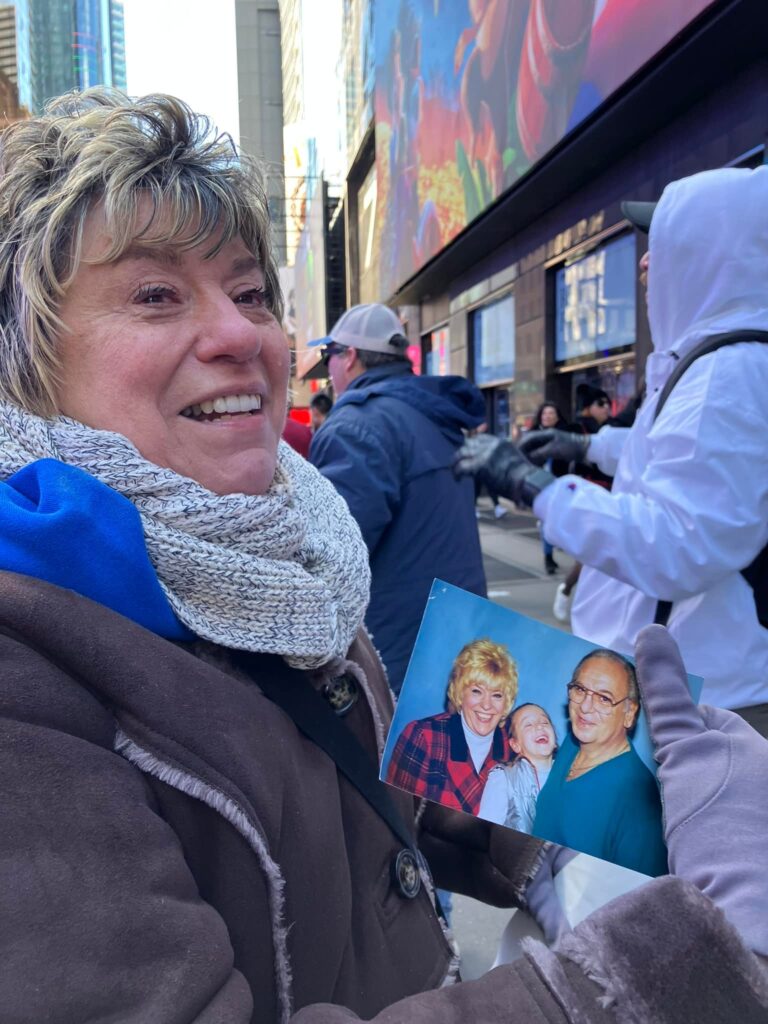
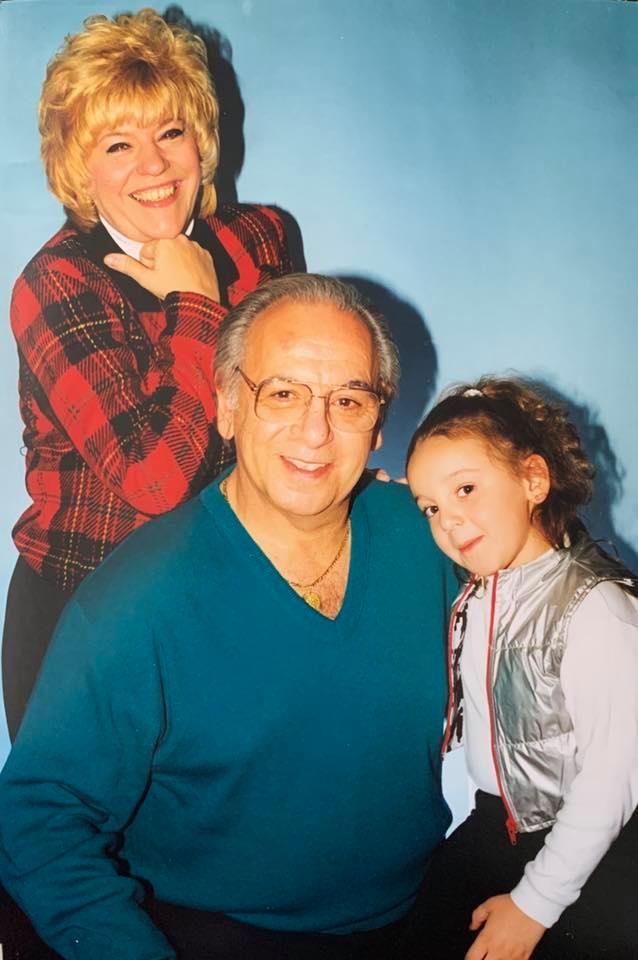
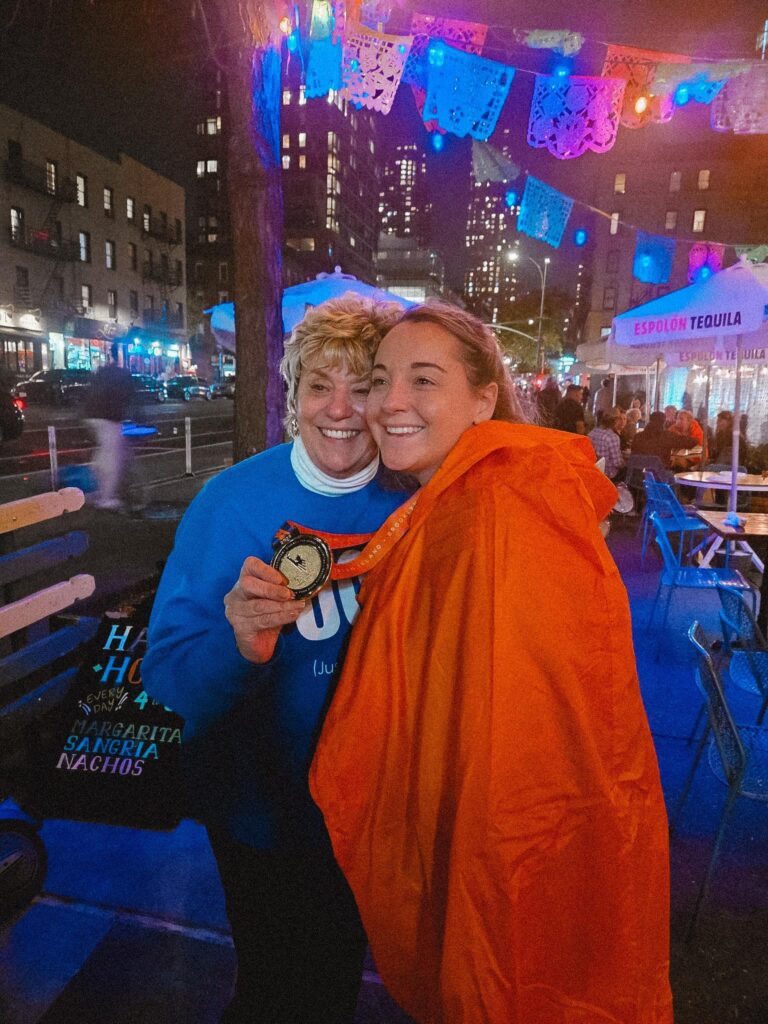
In the days before camp, I thought less about the grief work ahead and more about the freedom of being somewhere new. Here was a chance to just be myself, unburdened by others’ knowledge of my loss. I remember the drive there – perfect weather, endless possibilities ahead of me. When I walked into the dining hall with my mom to register, Kelly Hughes called out my name. For the first time in months, an adult looked at me and saw me – just Niki Russo – not the girl whose father had died.
They say major life events split our timelines: there’s who we are before and who we become after. For me, there were three versions: who I was before Dad died, who I was after, and who I became after finding Comfort Zone Camp. Life offers rare moments when you step into a space and know, deep in your bones, that you’re exactly where you’re meant to be. That Friday at camp was one of those moments, and every camp weekend since has felt the same. After that first experience, I never looked back. I never will.
The greatest gift Comfort Zone Camp gave me was permission to grieve openly and honestly, but the most profound lesson I learned from CZC was this: those who truly accept you – grief, joy, and everything in between – will never ask you to dim the very parts of yourself you’ve grown to love most.
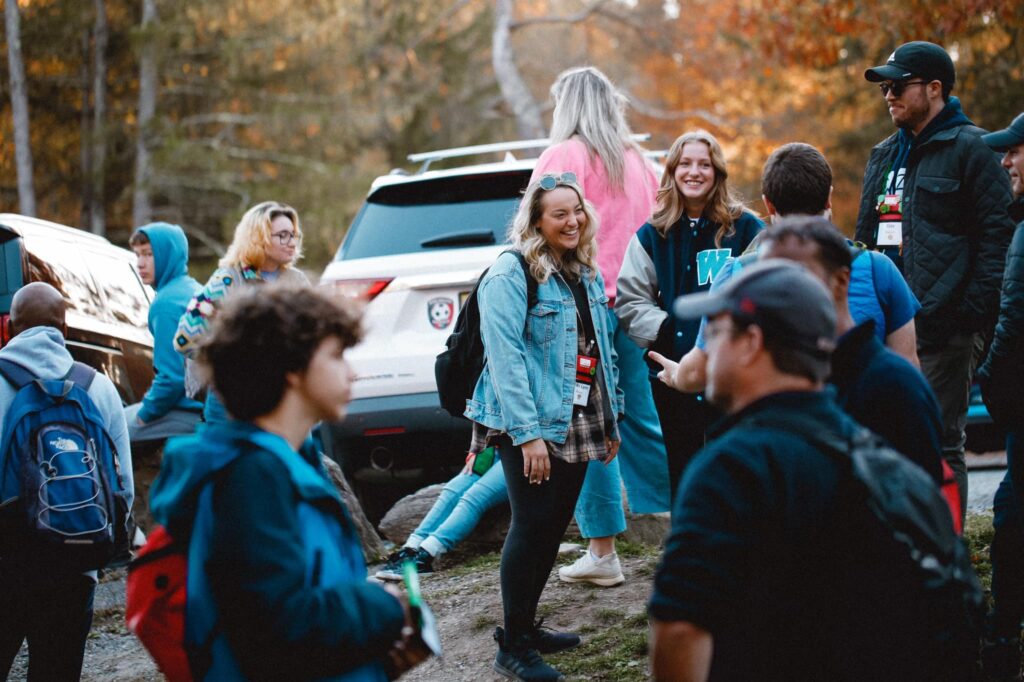

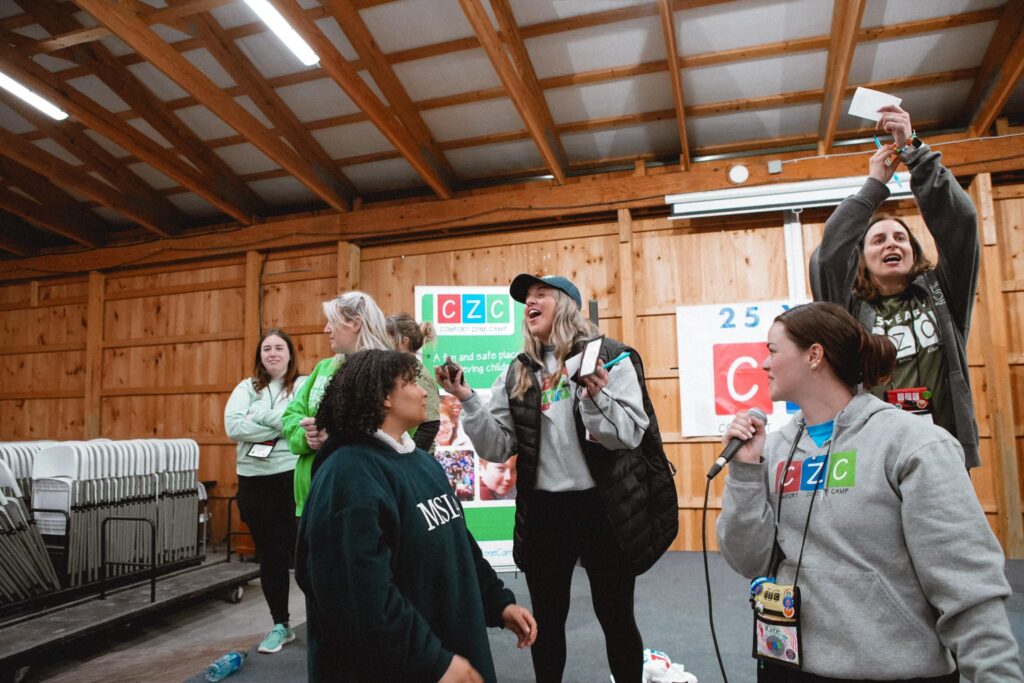
I grieve out loud because Comfort Zone Camp taught me it was right and necessary to do so. I live each day, both inside and outside of camp, as my complete, unfiltered self. Camp’s most profound lesson was this: those who truly accept you – grief, joy, and everything in between – will never ask you to dim the very parts of yourself you’ve grown to love most.
Lynne Hughes discovered something remarkable – a way to help us understand our grief more deeply in three days than we might in years of trying alone. Comfort Zone Camp doesn’t exist to “fix” grieving people, because we’re not broken. We’re simply humans experiencing the profound absence of someone who shaped our lives.
What makes CZC extraordinary is how it showed me I wasn’t walking this path alone. It opened my eyes to a broader perspective, helping me recognize the depth of love surrounding me. This is a family that continuously opens its arms to newcomers with a simple, powerful message: “Share your grief with me. Tell me about yourself and the person you lost. Let me hold space for your story.”
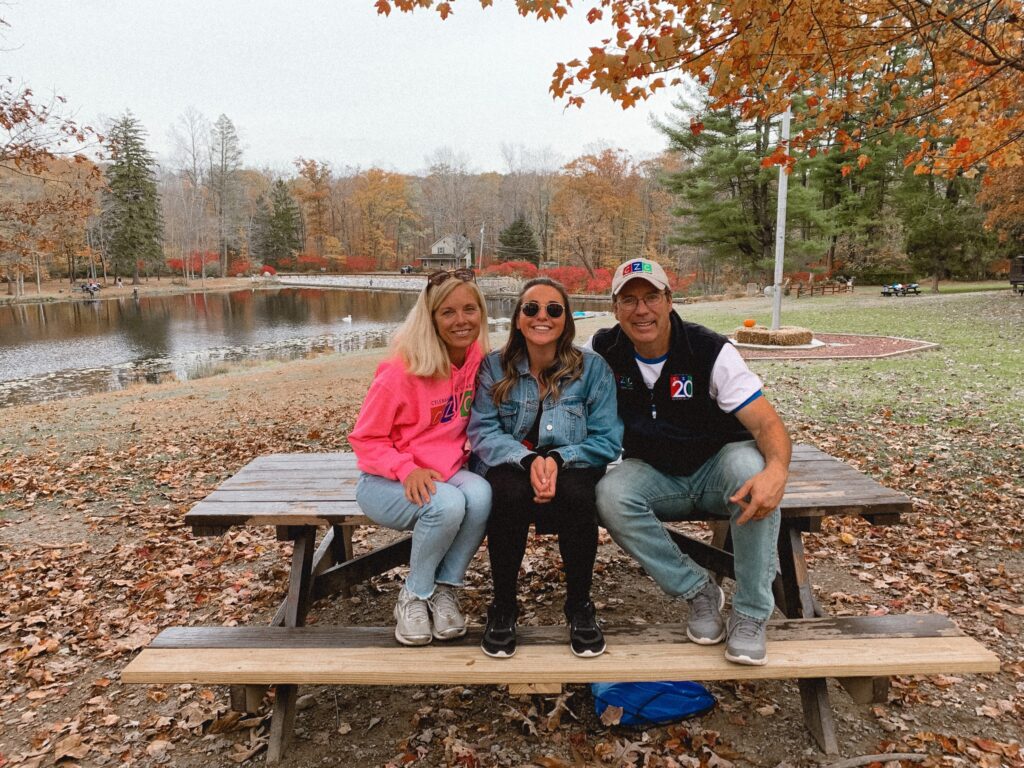
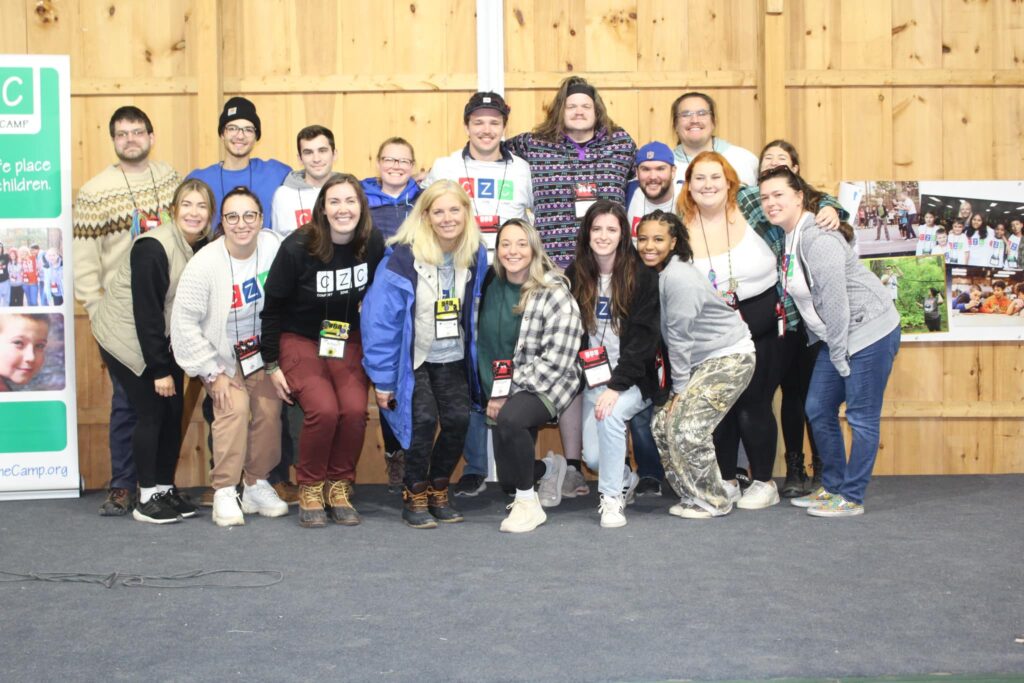
Being part of Comfort Zone Camp has given me the gift of growing alongside my grief. Each camp weekend – and I’ll admit this selfishly – I leave transformed, understanding my grief better at this particular moment in my life. Finding camp when I did feels like an extraordinary stroke of fortune, because I know with absolute certainty that I wouldn’t be who I am without it. I once believed a fulfilling life was measured by just career and academic achievements, while very important to me still, CZC also taught me a deeper truth: fulfillment comes from surrounding yourself with people who love you completely, believe in you unconditionally, and choose to walk beside you through every chapter.
This is how I’ve managed to grieve, heal, and grow throughout the years. My journey with grief will continue as long as I am walking this Earth, and I want to share it with people who want to be there for every step.
Because of CZC, I know I’ll always have exactly that.
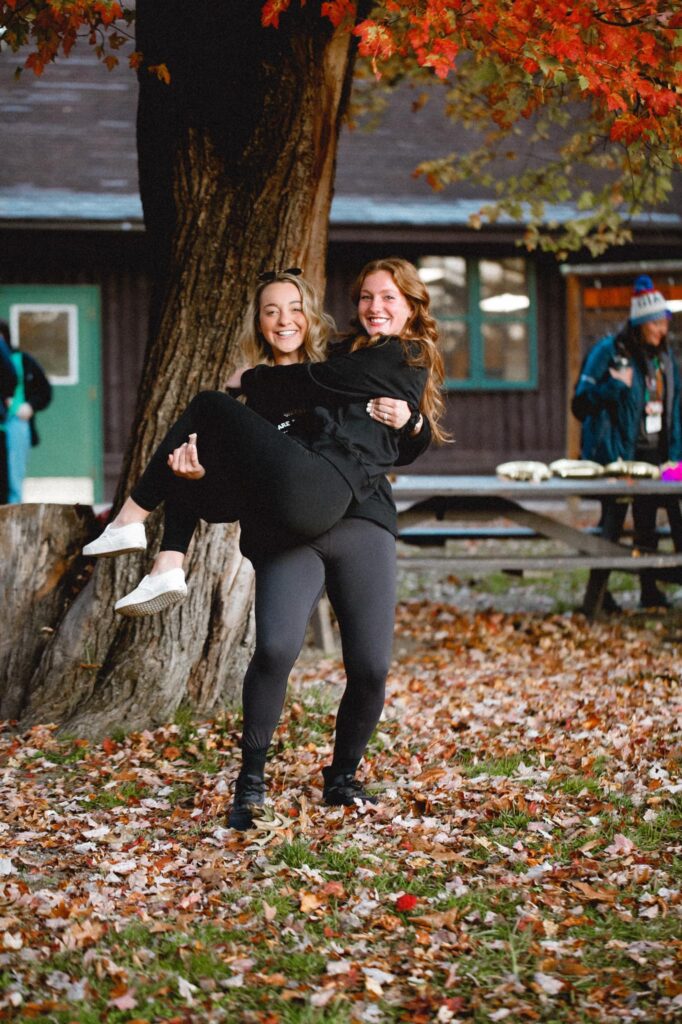
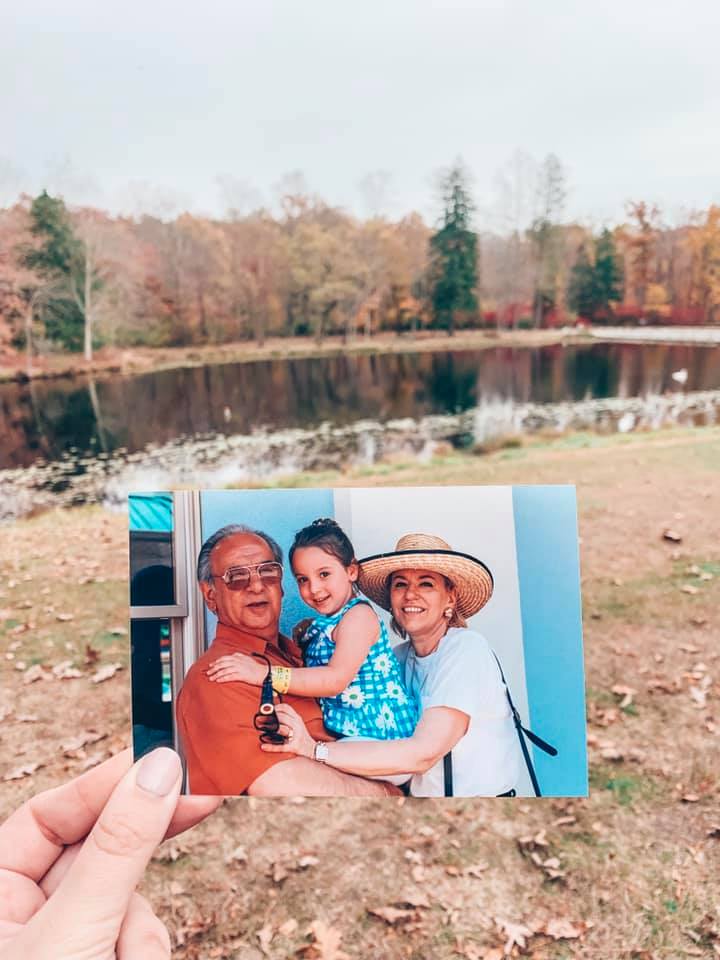
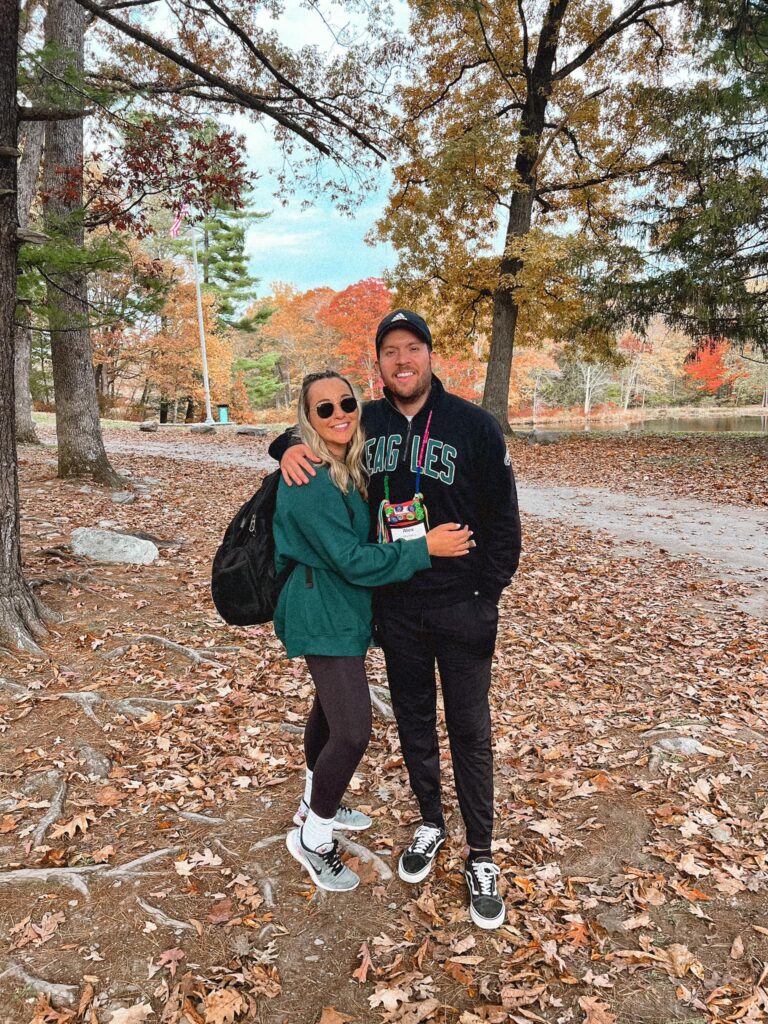
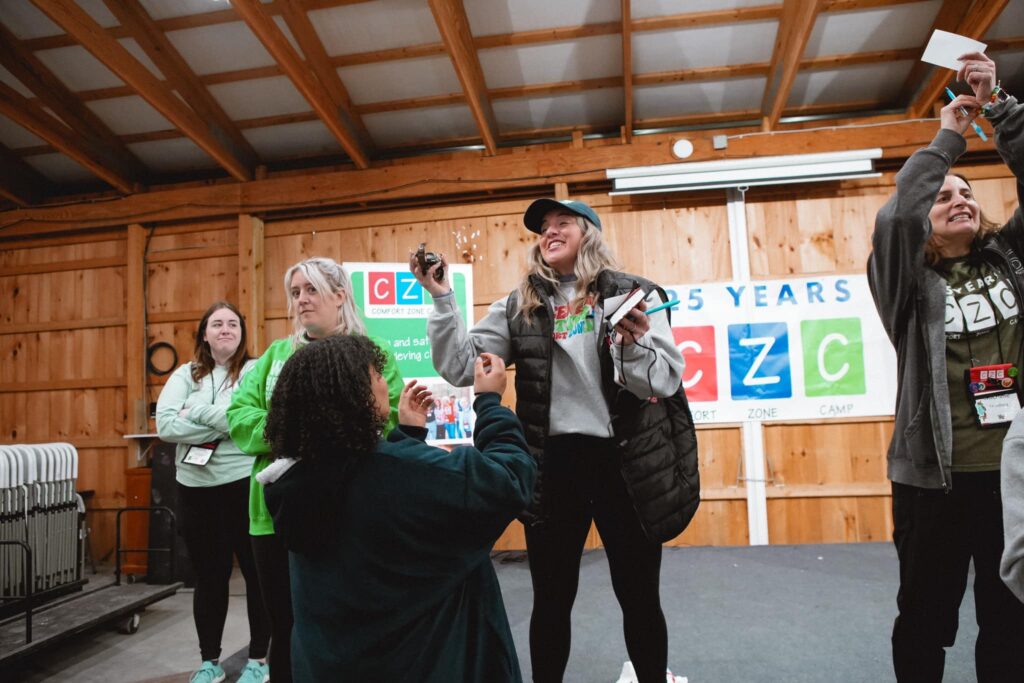
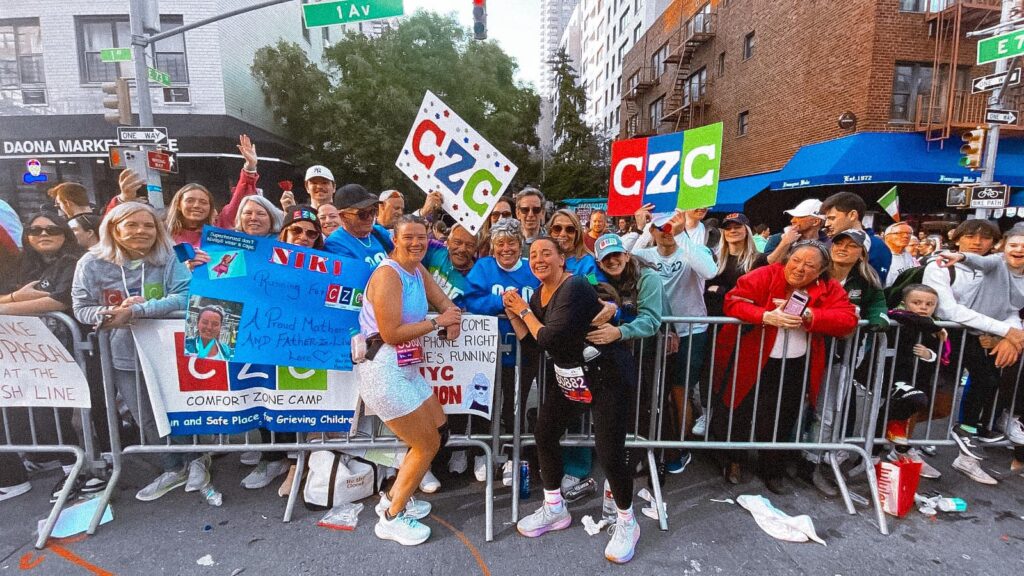
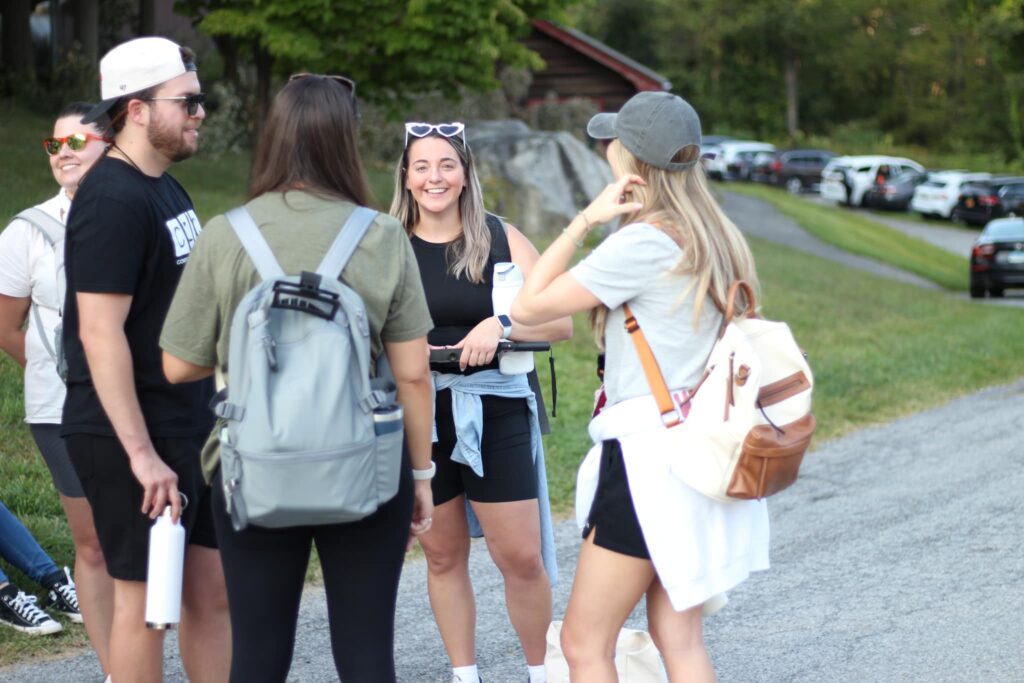
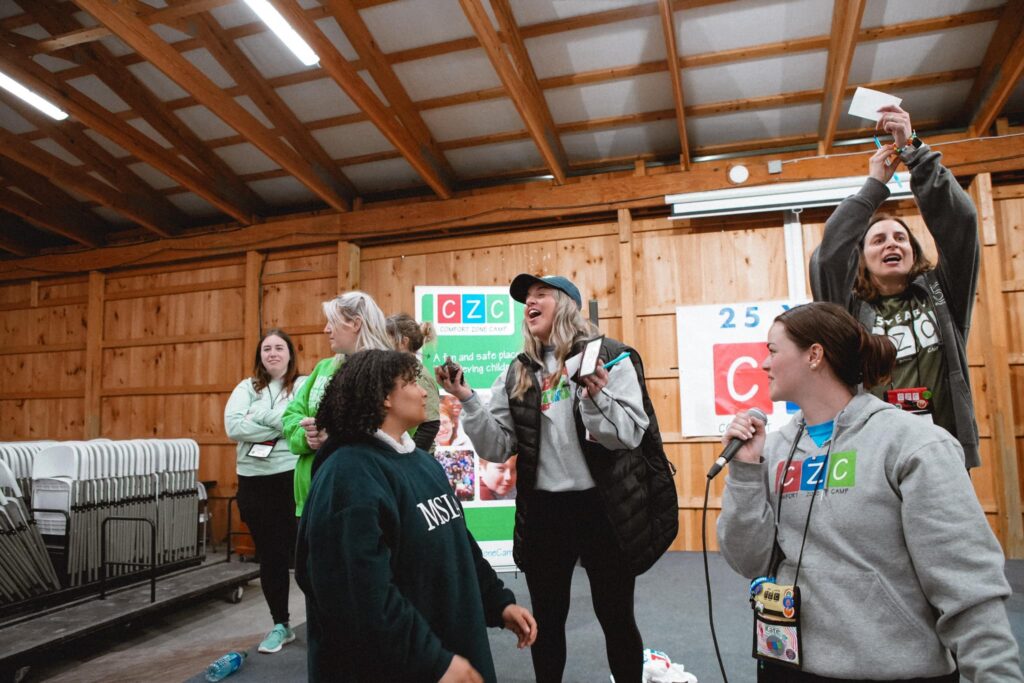
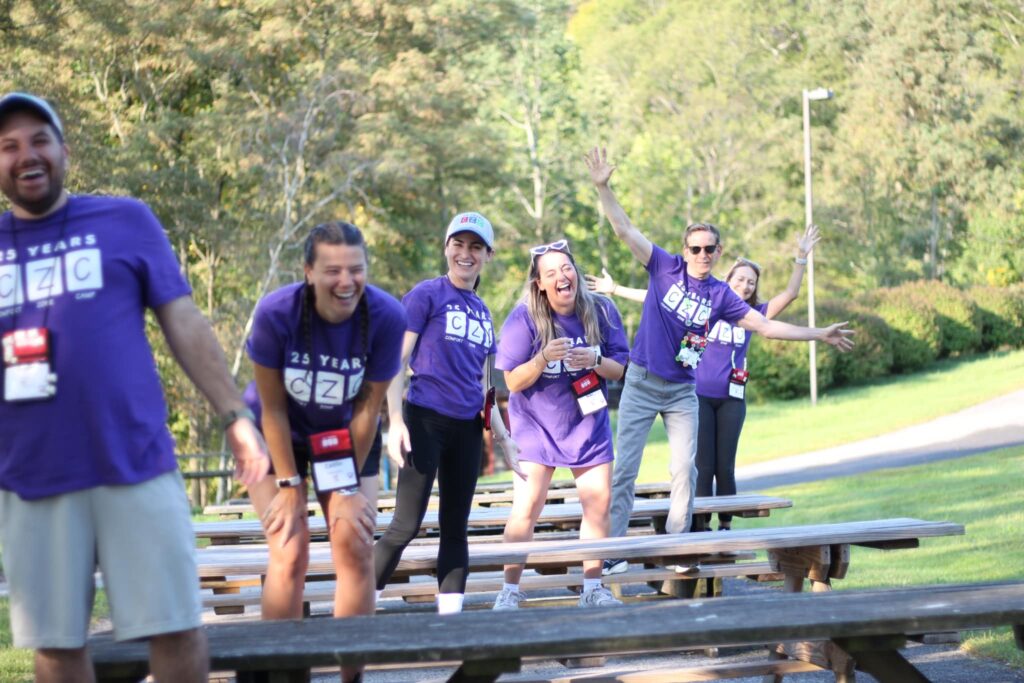
By: Niki Lynn Russo
